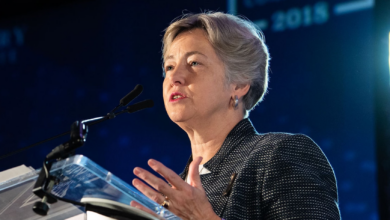By CHRIS WILLIAMS
COON RAPIDS, Minn. – The Minnesota school district that has resisted accusations that its policy to limit discussion of sexual orientation in the classroom has led to the bullying of gay students took the first step Monday night toward formally recognizing the need to openly discuss controversial topics.
Almost no one liked it.
More than 60 people attended the meeting of the Anoka-Hennepin Schools board and more than a dozen spoke against the proposal. Opponents of the current policy said the new one was too vague on what would be considered “controversial,” while supporters said it would open the schools to pro-homosexual teaching.
“I really didn’t know what to expect,” said school board Chairman Tom Heidemann after the meeting. The new policy was supposed reduce confusion about how to handle certain issues in the classroom, he said, but based on the comments the board received Monday it may need to be amended before the board considers it again in January.
The board of the Anoka-Hennepin district, the state’s largest with 38,500 students, considered exchanging its policies for talking about religion and sexual orientation in school for a set of blanket rules on discussing controversial topics.
The current sexual orientation policy says the topic isn’t part of the curriculum and is best addressed outside the schools, causing some Anoka-Hennepin teachers to wonder if they could discuss homosexuality at all in class. If the topic comes up in student-led discussions, the policy says the staff is to remain neutral.
The proposed new policy says the school board recognizes the importance of teaching students how to examine controversial topics, so long as those discussions are age-appropriate, free of prejudice and teachers don’t “advocate personal beliefs or opinions.”
Rachel Hawley, 18, a senior at Anoka High School, was among those who said the district was wrong to propose a policy that could label as controversial lesbian, gay, bisexual and transgender students. “You’re telling students that their identities, who they are, is controversial,” she said.
Tammy Aaberg of Champlin, whose 15-year-old son, Justin, killed himself last year after enduring anti-gay bullying, said the label would make gay students feel even worse. “I read the policy and my heart started hurting all over again,” Aaberg said.
Several district residents who support the current policy spoke against the change. Barb Anderson, a member of the Parent Action League, said she worried the change will mean “more homosexual propaganda will flood the classroom.”
Tiffany Strabala of Andover, a district parent, said teaching students about hot-button issues should be left to parents. “What is a school teacher doing teaching my child techniques to understand controversial topics?” she said.
The discussion comes as the district is defending itself against two lawsuits filed this summer on behalf of six current and former students who claimed there was an “epidemic” of anti-gay bullying in the district, which the plaintiffs largely blamed on the current sexual orientation policy.
The plaintiffs claim that from Nov. 2009 to July 2010, at least four lesbian, gay, bisexual or transgender students in the district killed themselves. Federal investigators began looking into complaints of harassment and bullying in the district in the fall of 2010.
The district has said its internal investigation found no evidence that bullying contributed to the deaths. However, the district changed its anti-bullying and anti-harassment policies in October 2010 to clearly state that harassment or bullying of gay students wouldn’t be tolerated.
Heidemann said the new controversial issues policy was not written in response to the lawsuit.
On Monday, the board also considered updating its harassment policy to align it with the latest guidance from the Minnesota Department of Education. For instance, it would specifically protect students who defy gender stereotypes of masculinity and femininity and the friends of family of gay students.
No one spoke against the changes to that policy Monday.










